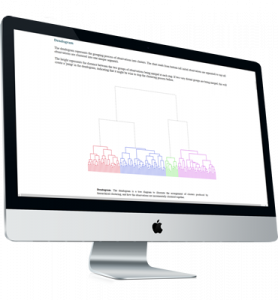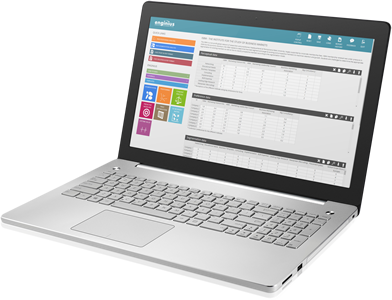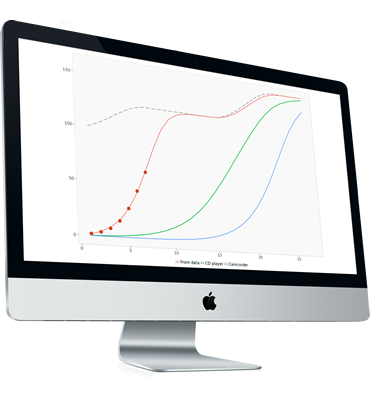
Bass forecasting
The Bass diffusion model is used to forecast the adoption and sales of a new product or service based on early adoption data or similar products. It can be used to forecast the long-term sales pattern of a product.
What you put in:
- Market potential for new products
- Historical sales data OR selection of analogous products
- Advertising and pricing plan
What you get out:
- Sales/adoption rate forecast for new product
- Sensitivity of sales forecast to marketing activities
- Ability to link to revenue and profit projections
Background
- The product has recently been introduced and sales have been observed for a few time periods.
- The product has not yet been introduced, but it resembles another product in the market whose sales history is known.
- the number of customers in the target segment that will eventually adopt the new product or service.
- when they will adopt it.
- p – the coefficient of innovation (or coefficient of external influence)
- q – the coefficient of imitation (or coefficient of internal influence)
- r – market growth (as a function of existing market size)
- s – the market price elasticity, or how much a change in price affects the total market potential
- v – the advertising coefficient, which affects the strength of the effect of changes in advertising levels in product diffusion
- w – the price coefficient, which affects the strength of the effect of changes in price in product diffusion
Key features
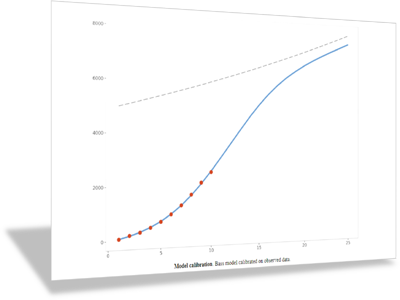
Calibrate on past data
If the product or service has been launched for several periods already, and past adoption data is available, the Bass model can auto-calibrate et identify the parameters that best explain past adoptions, then use these parameters to predict future adoptions.
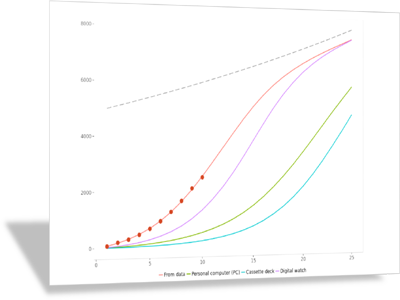
Database of 120 products
Enginius embeds a database of parameters for the Bass model estimated for over 120 historical products and services. If you do not have enough data to calibrate a Bass model, you can use that database to make market forecasts by analogy.
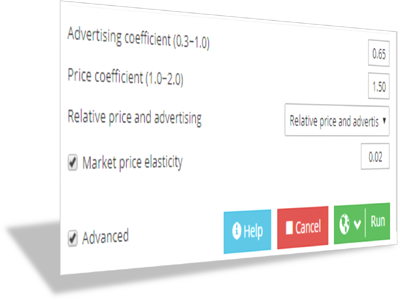
Advanced Bass model
The advanced Bass model lets you modify the speed of adoption by measuring the impact of variations in price or advertising over time. Market adoption is usually accelerated as price decreases and advertising becomes more prevalent, and the advanced Bass model (available when you click on the advanced option) takes those effects into accounts for more accurate predictions.


